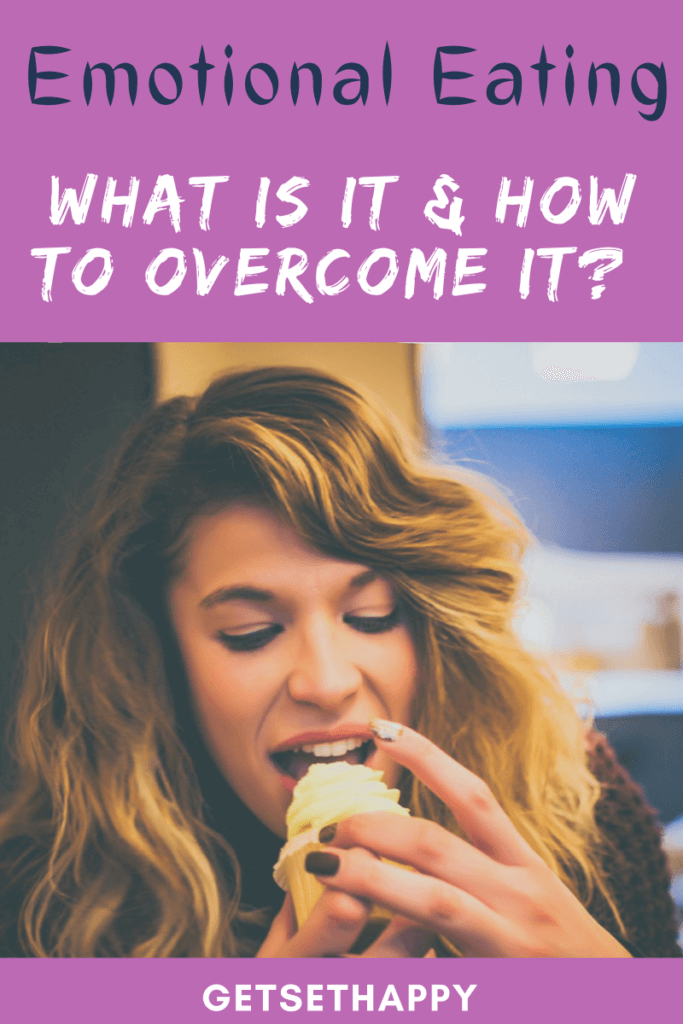There are many reasons people overeat. Emotional eating is quite common, especially amongst youngsters. Emotional eating can lead to weight gain and make it difficult for people attempting to lose weight to accomplish their goals. However, there are steps you can take to overcome this issue.
How Emotional Eating Works
People who have issues with emotional eating often eat as a coping mechanism for negative emotions, such as fear, stress, anger, sadness, boredom, or loneliness. Sometimes major events, such as a breakup or a job loss can trigger emotional eating. Other times everyday occurrences, such as a bad day at work or an argument with a friend or family member may lead to the behavior.
Some people eat less when dealing with strong emotions, but some people turn to binge eating. This behavior may become habit-forming, leading those who engage in it to mindlessly eat whenever they are experiencing negative emotions. Because many people experience guilt when they overeat or indulge in foods they consider unhealthy, this behavior can lead to a self-replicating cycle where people overeat to cope with negative emotions and then feel bad about eating which triggers them to eat more.
How to Overcome Emotional Eating?
There are a variety of techniques people can employ to change their emotional eating behaviors. Some people can overcome the issue on their own. Others may need professional help.
1. Try an App
There are apps for almost everything and changing behaviors is no exception. The DrJud.com app helps users change emotional eating disorders by following a science-based approach for rewiring the brain. The program assists users with identifying the difference between physical hunger and emotional cravings and figuring out what their triggers are that generate those cravings. It then leads users through a series of behavior modification steps aimed at reducing or eliminating unwanted behaviors.
2. Keep a Food Diary
Food diaries are a tool you can use to identify the patterns in your emotional eating behaviors. To keep a food diary (A food tracker), record what you eat when you eat, how hungry you are, how much you eat, and what you are feeling when you eat.
3. Recruit a Support Network
Gather a group of friends and family members you can trust and reach out to them when you are struggling. You are less likely to engage in emotional eating if you have support from other people.

4. Don’t Deprive Yourself
Cutting calories too low or forbidding yourself from having certain foods can increase your cravings. Instead, try composing your diet of mostly nutrient-dense, filling foods, but still allow yourself to have treats in moderation.
5. Keep a Positive Attitude
If you engage in emotional eating, don’t beat yourself up about it. Treat the experience as a chance to learn and increase your chances of success in the future, then put it behind you and start fresh. Focus on the positive changes you are making instead of any slip-ups you may have along the way.
6. Reduce Stress
If stress triggers your emotional eating, take steps to reduce the amount of stress in your life. Try techniques such as yoga, deep breathing, or meditation to replace food as a coping mechanism.
Further Reading: 5 Yoga Breathing Techniques For Weight Loss
7. Give Yourself a Time Out
If you want to eat, don’t reach for a snack immediately. Drink a glass of water and do something that takes your mind off food. If your urge to eat is emotional, rather than physical, it may go away.
Changing lifestyle or habits can be challenging; however, it is possible to overcome emotional eating. If you try one of these techniques and it doesn’t work for you, try a different one. There is no one perfect solution for everyone.

Featured Image: Food photo created by DCStudio – www.freepik.com






1 Comment
Kevin Foodie
October 30, 2021 at 7:09 pmThese are some excellent tips for overcoming stress eating. I will look into the DrJud App; seems interesting.
I am a stress eater. Your point about reducing stress is a great point. The core cause of emotional eating is STRESS. As it is said, STRESSED spelled backwards is Desserts; my go to stress food.
Thanks for sharing Jais.